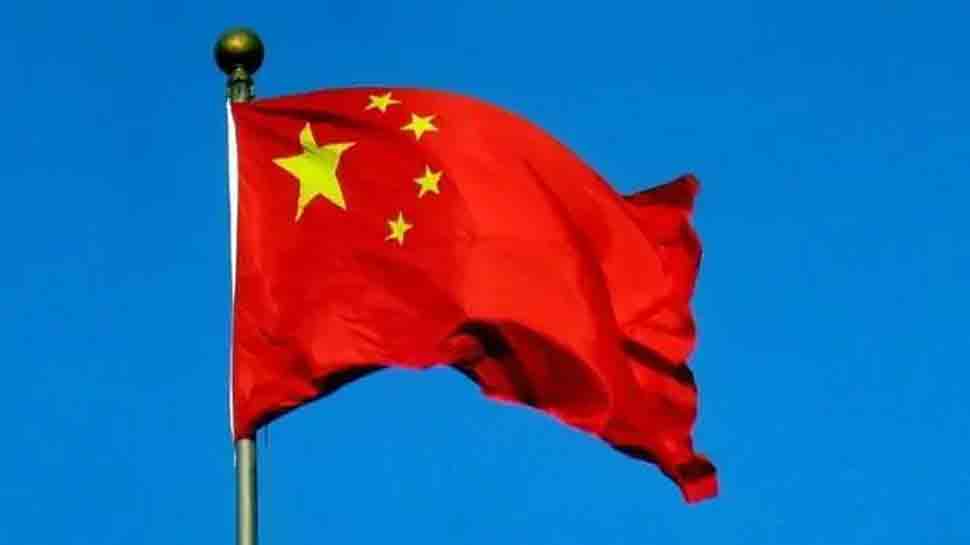NEW DELHI: The avowedly atheistic Communist Party of China (CCP) has taken a much more aggressive stance against religious practices in the last several years under Xi Jinping’s leadership, including the creation of new rules limiting foreign influence on religion in China. Its intent has been to forcibly align the religions and the religious institutions remained aligned with the ideology of CCP. Xi’s administration is all geared up to introduce a set of new regulations to control the religious activities of foreign worshipers in China in line with the Chinese religion or say, religion with Chinese characteristics.
The draft regulations for "Provisions on the Administration of Foreign Religious Activities in the People's Republic of China", published by the Ministry of Justice in mid-November were in open to public comments till December 17 and are expected to become law early this year. The draft law comprises 40 Articles clustered under 5 Chapters.
Chapter-I (Article 1-5) primarily focuses on defining terms such as 'foreigners' and 'religious activities of foreigners in China'. The Article-5 states that 'Foreigners in the territory conducting religious activities shall abide by China’s laws, regulations and rules, respect the principles of Chinese religion's independence and must not violate public order and good customs in China.'
Use of the phrase 'China's religious independence' in Chapter-1 of the new rules underlines the government's effort to rid the country of foreign influences. It is primarily aimed at Christian groups as Christianity is one of the fastest growing religions and lately foreigners have had some freedom in China to live as Christians. With implementation of the new regulations, China also aims at pre-empting any possible move from the Vatican towards religious liberties for Christians in China and filling of vacant seats of bishops as well as any possible pressure from Vatican to have its representation in Beijing.
Chapter-lI (Article 6-21) stipulates that foreign worshipers who want to host religious activities in China shall be required to apply for a permit. It further specifies what documents foreign missionaries need to provide, when applying for a permit, viz., describing the primary religious texts used, listing all attendees names, visa status and nationalities, giving a detailed program of the service, etc. It forbids the foreign missionaries from carrying out religious education & training, converting new believers, or accepting religious donations from Chinese citizens,and any such activity that undermines China's national unity. Under Article 17, the religious activities, organized by foreigners in China are limited to be attended by only foreign citizens.
The phrase 'China’s national unity' is primarily a reminder of the unquestionability of Xi’s administration. China has long been disallowing its citizens the right to belief and expression in name of national unity. To this end China has adopted a strategy of 'sinocization of religion' or promoting 'religion with Chinese characteristics'. The Uyghur Muslims in Xinjiang have been victimized for years to fulfill Xi Jinping’s desire to have control over religion. Some recent reports, such as “China: Big Data Program Targets Xinjiang’s Muslims” by Human Rights Watch (HRW) and “Coercive Labour in Xinjiang: Labour Transfer and the Mobilization of Ethnic Minorities to Pick Cotton” by Centre for Global Policy, has uncovered that the CCP has reached a new low by detaining and enslaving ethnic minorities to impose upon the so called "religion with Chinese characteristics".
Chapter-Ill (Article 22-29) specifies that the foreign missionaries shall be allowed to conduct friendly religious exchanges and be required to demonstrate that they are "friendly to China" in their country of origin.
The phrase 'friendly to China' is an obvious pointer towards Tibet. China has been trying to control Tibetan Buddhism since it occupied Tibet in 1950. In 1995, China announced their own Panchen Lama, after abducting the real 11th Panchen Lama just two days past his name was announced by the Dalai Lama. The move was aimed at using the China-appointed puppet Panchen Lama for legitimizing the appointment of their own Dalai Lama. However, China-appointed Panchen Lama is widely considered a false Panchen Lama. With the new regulations, China would be further altering the real doctrine of Buddhism in line with Chinese characteristics, while pressurizing the Tibetan religious leadership to fall in line.
Chapter-IV (Article 30-36) describes the punishments for violating the stipulated provisions. It states that such offenders shall be dealt with by the national security organs under 'Counter Espionage Law of the People's Republic of China'. There are provisions for punishment not only to foreigners who violate the rules, but also to the public officials who abuse their powers or engage in malpractices for the personal gain while managing religious activities of foreigners. This shows the resolve of Chinese administration to ensure fail-proof implementation of the new regulations so that the religious institutions and leaders embrace state-mandated socialism and leadership of the Chinese Community Party.
Chapter-V (Article 37-40) illustrates the supplementary provisions regarding responsibilities of the religious organizations in the provinces, autonomous regions, and municipalities under direct administration of the Central Government. It states that overseas Chinese living in Taiwan, Hong Kong and Macao, conducting religious activities in the Mainland, shall also be dealt with in reference to these rules.
The new regulations are intended to further the existing tools of controlling the religions, religious institutions and leaders. The first set of such regulations were issued in 1994, followed by revisions in 2000 and 2010. By emphasizing the religious independence of China and its national unity, Xi's administration intends to layover CCP’s ideology on free religious beliefs, both legally and bureaucratically.
In China, the CCP has always been above the nation and its citizens. Now, with the new regulations China would be enforcing CCP’s supremacy over the religions. The current hierarchical system of CCP is well established with Xi Jinping being the core of the party. Now with the almighty God being in centrality of every religion, China’s next attempt could be to superimpose Xi Jinping over the God.
















